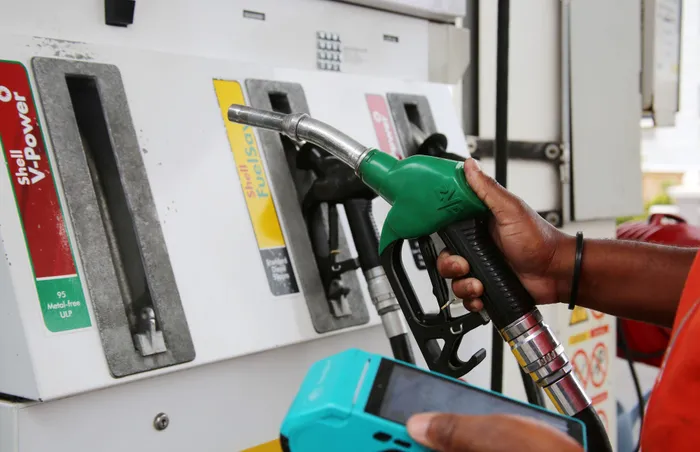Some pre festive cheer as fuel price cuts in November bring welcome year-end relief

As South Africans prepare for the holiday season, the recent drop in petrol and diesel prices offers a much-needed reprieve amidst financial strains, making travel more affordable for families across the country.
Image: Tumi Pakkies / Independent Newspapers
As we reach the end of the year, motorists and businesses will enjoy a decrease in fuel prices across the board.
This comes after the Department of Mineral and Petroleum Resources (DMPR) has announced the official fuel price adjustments for November. Both grades of petrol will decrease by 51 cents per litre, while diesel will go down by between 19 cents (50ppm) and 21 cents (500ppm).
This means South Africans will pay R20.29 for a litre of 95 Unleaded petrol at the coast and R21.12 in the inland areas, where the cheaper 93 Unleaded will retail for around R20.97. This will bring petrol prices to their lowest levels in just over a year, and close to three-year lows.
The wholesale price of 50ppm diesel will fall to R18.42 at the coast and R19.18 inland.
This latest adjustment marks a notable shift in petrol prices, bringing them to their lowest levels in more than a year, and approaching three-year lows.
Lebo Ramolahloane, National Vice Chairperson of the South African Petroleum Retailers Association (SAPRA), said that the timing of the decreases is especially positive.
“As we approach the festive season and motorists begin planning their December trips, the fuel price cuts will bring welcome relief. Lower fuel costs are also encouraging news for commuters relying on public transport and for businesses across transport, agriculture, and logistics that are managing tight margins,” Ramolahloane said.
Ramolahloane added that while the continued downward trend is welcome, volatility in global oil markets and currency movements remains a factor to watch closely.
“This month fortunately saw Brent Crude oil fall to its lowest level in almost six months, with prices dropping to around the $61 mark during the period under review.Sustained stability in fuel prices is key for planning and consumer confidence. SAPRA will continue to monitor the situation closely to keep motorists and the wider industry informed,” Ramolahloane added.
When looking back at the fuel pricing landscape over the course of the year, it becomes apparent that relative stability has characterised the market.
At the beginning of the year, the price of 95 Unleaded petrol was recorded at R20.80, with a peak reaching R21.62 in February.
Since then, however, there has been a gradual decline, allowing consumers to enjoy some relief around fuel expenditures.
With many consumers feeling the strain of increased living expenses, these price cuts provide a welcome respite, allowing for budget reassessment as the holiday season approaches. It remains to be seen whether these lower prices will hold steady or if fluctuations in global oil supply may impact the figures once again in the near future.
Neil Roets, CEO of Debt Rescue, however, told Business Report that South Africans have been trapped in a relentless cost-of-living price increase cycle for most of the year, and their coffers are empty as we head towards December.
Roets said, "The small petrol price cut for November announced, no matter how welcome, will not relieve the plight of millions of South Africans, who are in serious financial distress, with household budgets leaving little leeway for any festive cheer and even less relief to take the edge off this tough year."
"While high electricity and food prices continue to decimate household budgets, the cost of fuel has a significant influence on household's holiday travel plans, and the impact of the steeper petrol price is that millions of people will have to sacrifice their annual trip to visit their families over the festive season, and will instead be staying at home this year, trying to rustle up some holiday cheer," Roets added.
"Against this backdrop, The South African Reserve Bank (Sarb) has issued a warning that the ongoing US tariffs on local exports and the end of the African Growth and Opportunity Act (AGOA) will eat away at already low economic growth and cost thousands of jobs. We need to look at the toll this will take on the youth especially, who are the hardest hit by lack of employment opportunities," Roets said.
BUSINESS REPORT